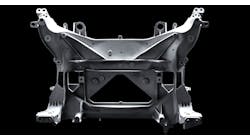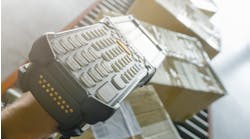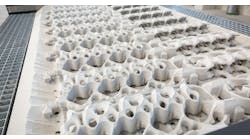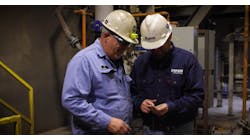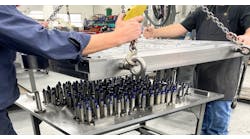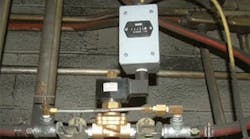Retrofitting 68 cabinet coolers with thermostat controls and an integrated purge function cut the energy cost by over 50%.
Neenah Foundry in Neenah, WI, is one of the larger metalcasting operations in the U.S., producing ferrous castings for machine parts and numerous municipal castings (grates, manhole covers, etc.) Like any big foundry, it generates a lot of heat and consumes a lot of electrical energy.
Working with a statewide program called Focus on Energy that coordinates efforts and resources to install energysaving technology and capabilities, and with the local electric utility We Energies, Neenah Foundry implemented an energy-efficient technology that may be practical for other foundries or industrial plants where cabinet coolers are used. The foundry cut the energy cost for 68 cabinet coolers by over 50%, reducing those costs by more than $141,000 annually according to Focus on Energy.
Cabinet coolers keep electronic circuitry clean, cool, and dry when they have to be installed in industrial environments, like a foundry. Typically, cabinet coolers use a lot of compressed air as the cooling source, which is supplied by air compressors that require high levels of electrical energy.
After researching various options to reduce the energy use of cabinet coolers at Neenah Foundry, there was evidence to show that retrofitting the cabinet coolers with thermostat controls and an integrated purge function would be the most cost-effective option for reducing energy consumption.
Neenah Foundry retrofitted 68 vortex cabinet coolers that now use a small amount of purge air to maintain positive pressure within the cabinets at all times. Full air flow is used only when the thermostat calls for cooling. The electronic thermostat operates just like a standard programmable thermostat, activating only when the temperature inside the cabinet rises to a pre-set level, which prevents the cabinet coolers from needlessly running at full flow.
“Financial incentives and technical assistance from Focus on Energy allowed us to move forward with this project, which paid for itself very quickly,” recalled Neenah Foundry electrical engineer Keith Rushford. “During the initial study we installed and analyzed 38 units. At that point, we realized the high savings potential and we were able to invest in 30 more cabinet cooler retrofits on our own.”
“By implementing this innovative emerging technology into practice, Neenah Foundry met its goal to reduce energy costs without compromising on safety or equipment maintenance practices,” stated Focus on Energy business programs director Ken Williams. “Neenah Foundry continues to investigate new technologies and find more ways to save energy—this is a positive example for other businesses to follow.”
